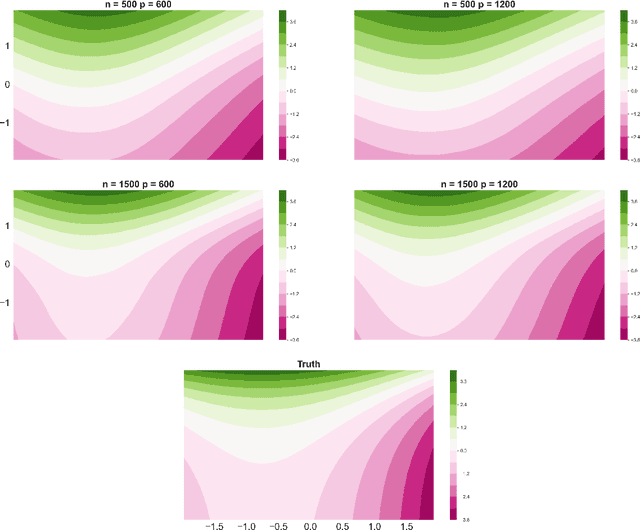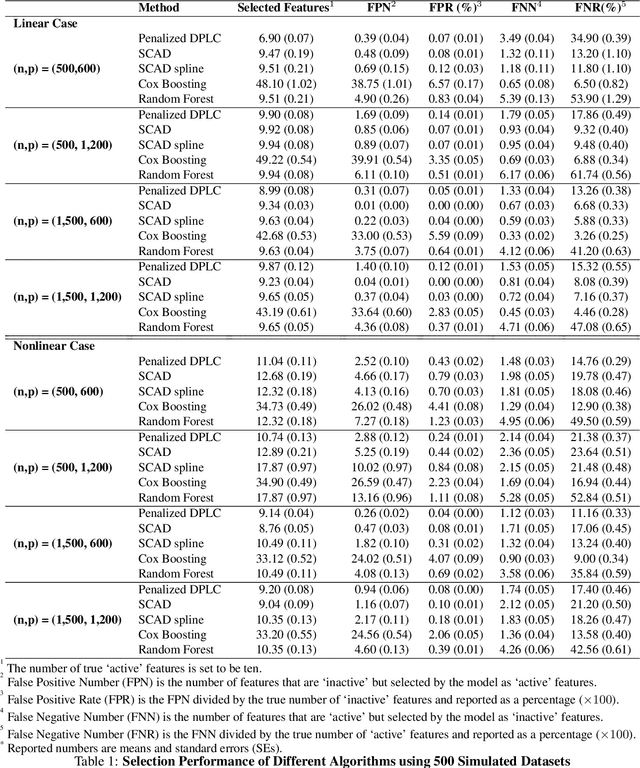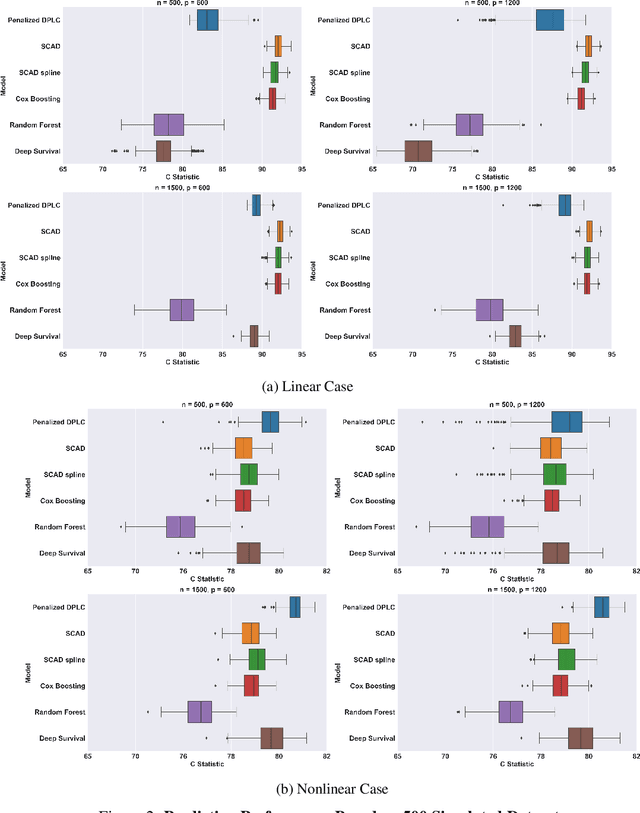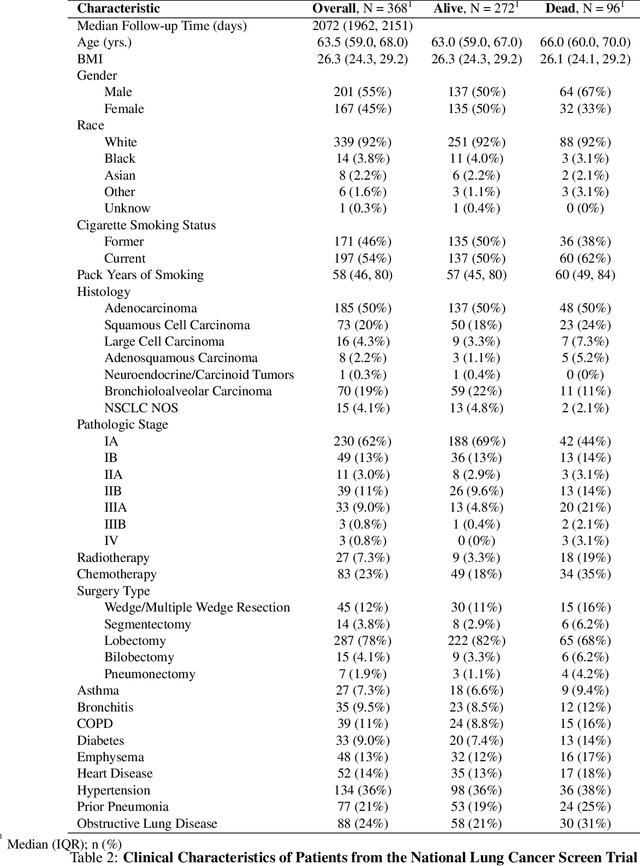Penalized Deep Partially Linear Cox Models with Application to CT Scans of Lung Cancer Patients
Paper and Code
Mar 09, 2023



Lung cancer is a leading cause of cancer mortality globally, highlighting the importance of understanding its mortality risks to design effective patient-centered therapies. The National Lung Screening Trial (NLST) was a nationwide study aimed at investigating risk factors for lung cancer. The study employed computed tomography texture analysis (CTTA), which provides objective measurements of texture patterns on CT scans, to quantify the mortality risks of lung cancer patients. Partially linear Cox models are becoming a popular tool for modeling survival outcomes, as they effectively handle both established risk factors (such as age and other clinical factors) and new risk factors (such as image features) in a single framework. The challenge in identifying the texture features that impact cancer survival is due to their sensitivity to factors such as scanner type, segmentation, and organ motion. To overcome this challenge, we propose a novel Penalized Deep Partially Linear Cox Model (Penalized DPLC), which incorporates the SCAD penalty to select significant texture features and employs a deep neural network to estimate the nonparametric component of the model accurately. We prove the convergence and asymptotic properties of the estimator and compare it to other methods through extensive simulation studies, evaluating its performance in risk prediction and feature selection. The proposed method is applied to the NLST study dataset to uncover the effects of key clinical and imaging risk factors on patients' survival. Our findings provide valuable insights into the relationship between these factors and survival outcomes.
 Add to Chrome
Add to Chrome Add to Firefox
Add to Firefox Add to Edge
Add to Edge